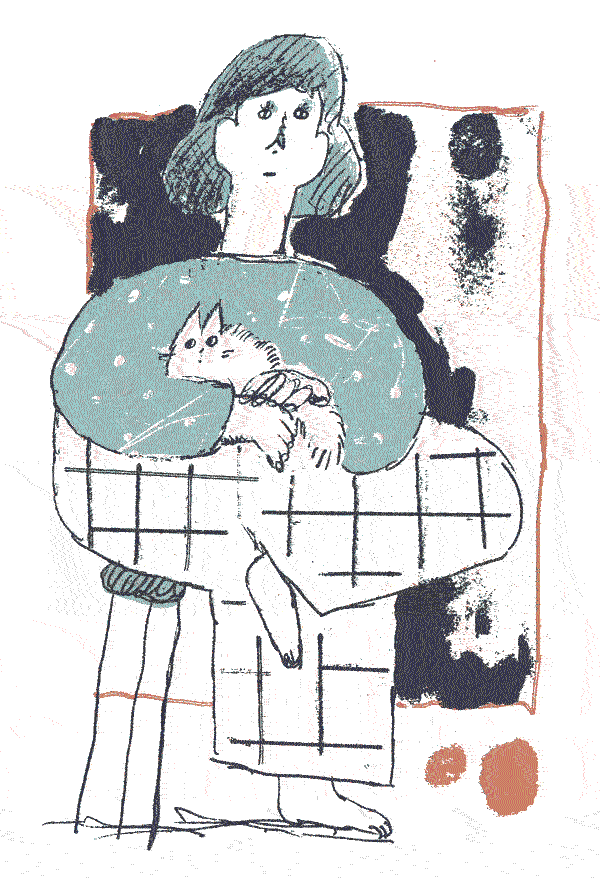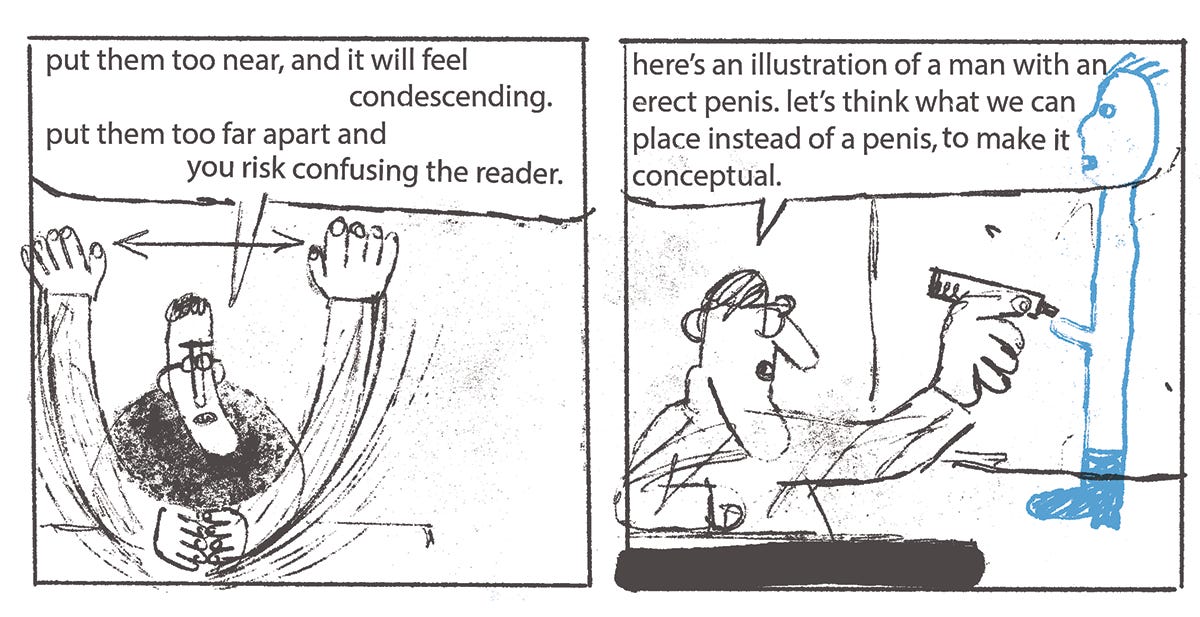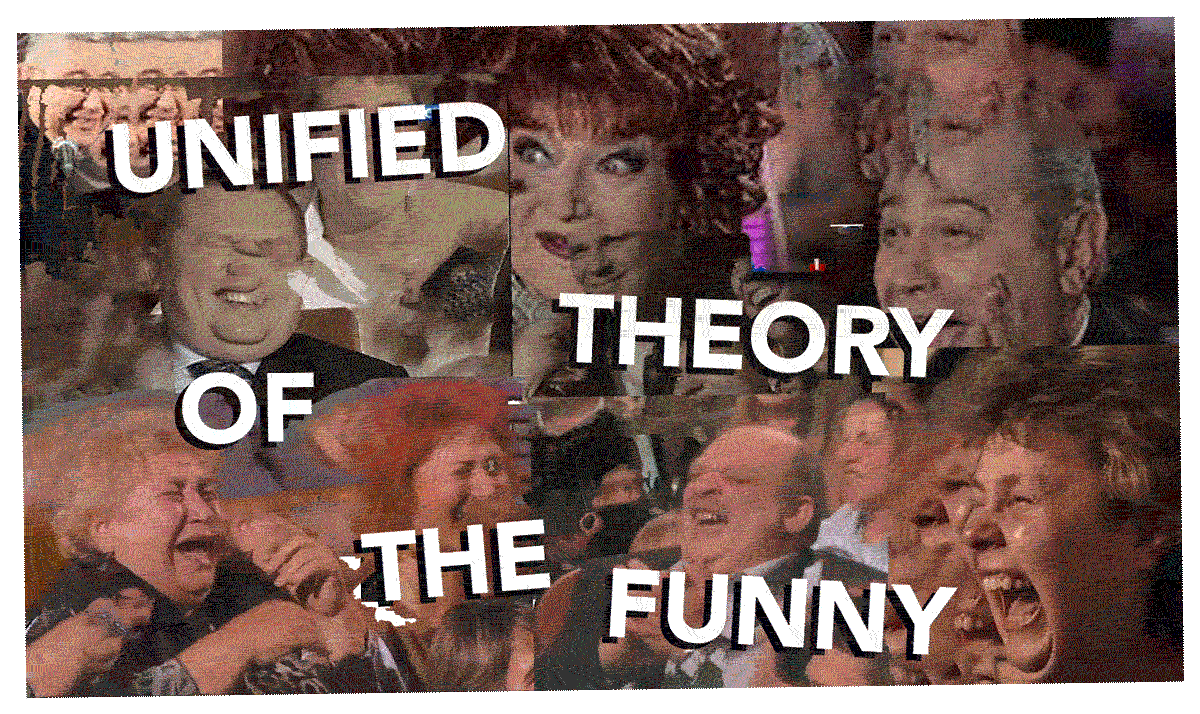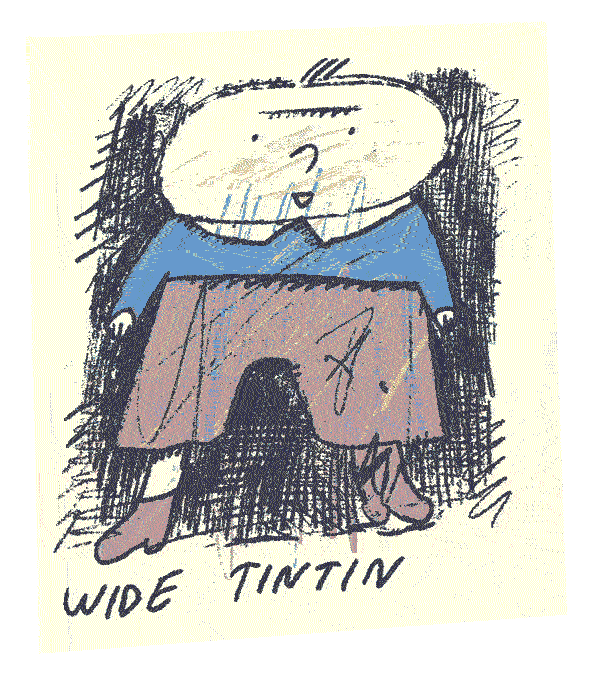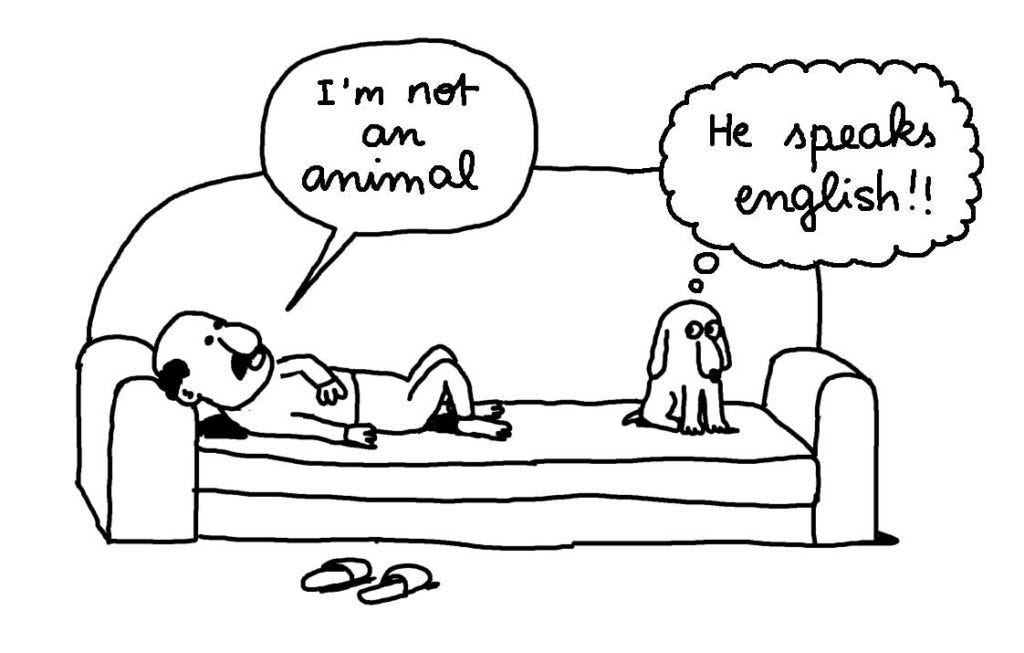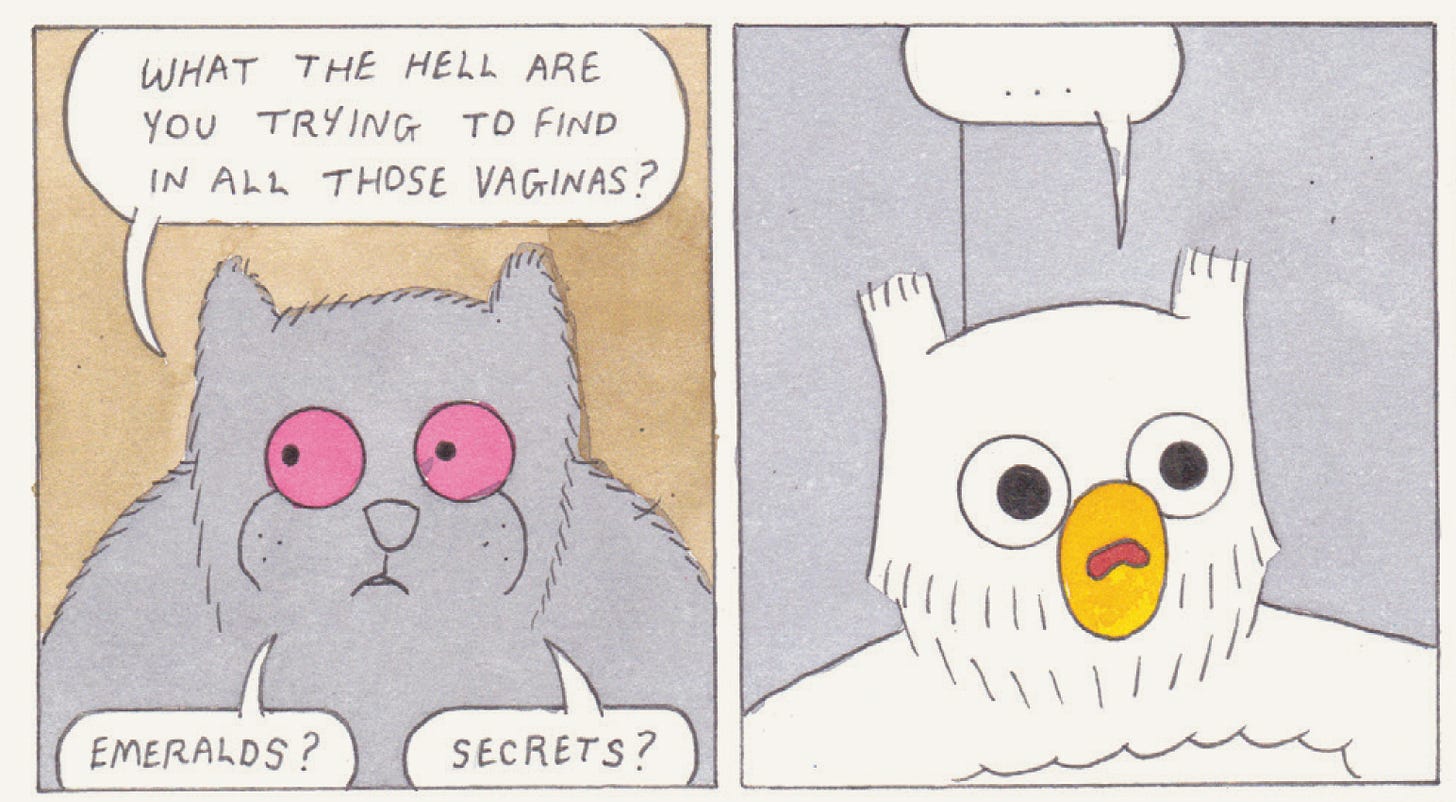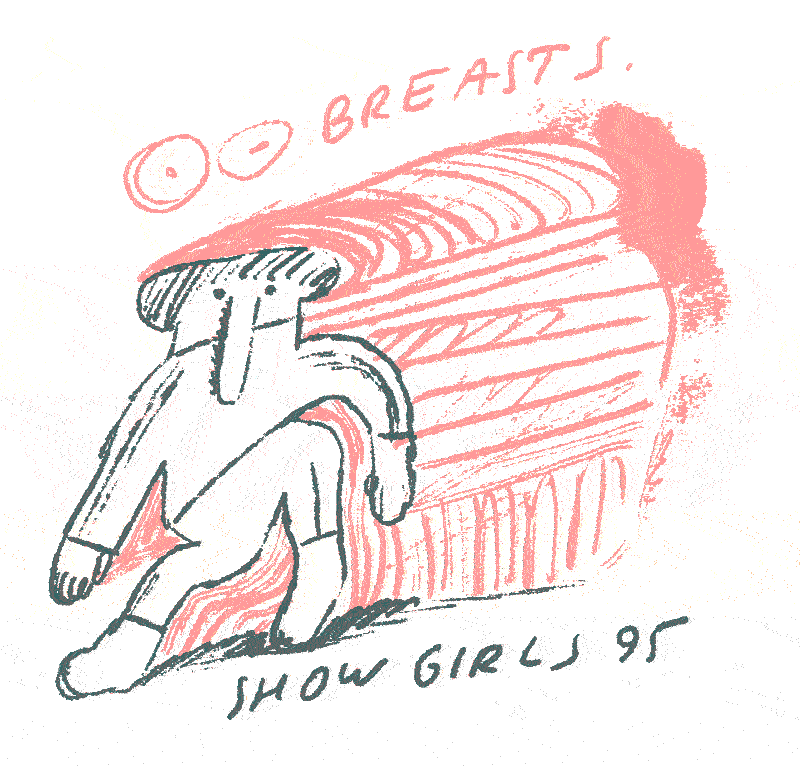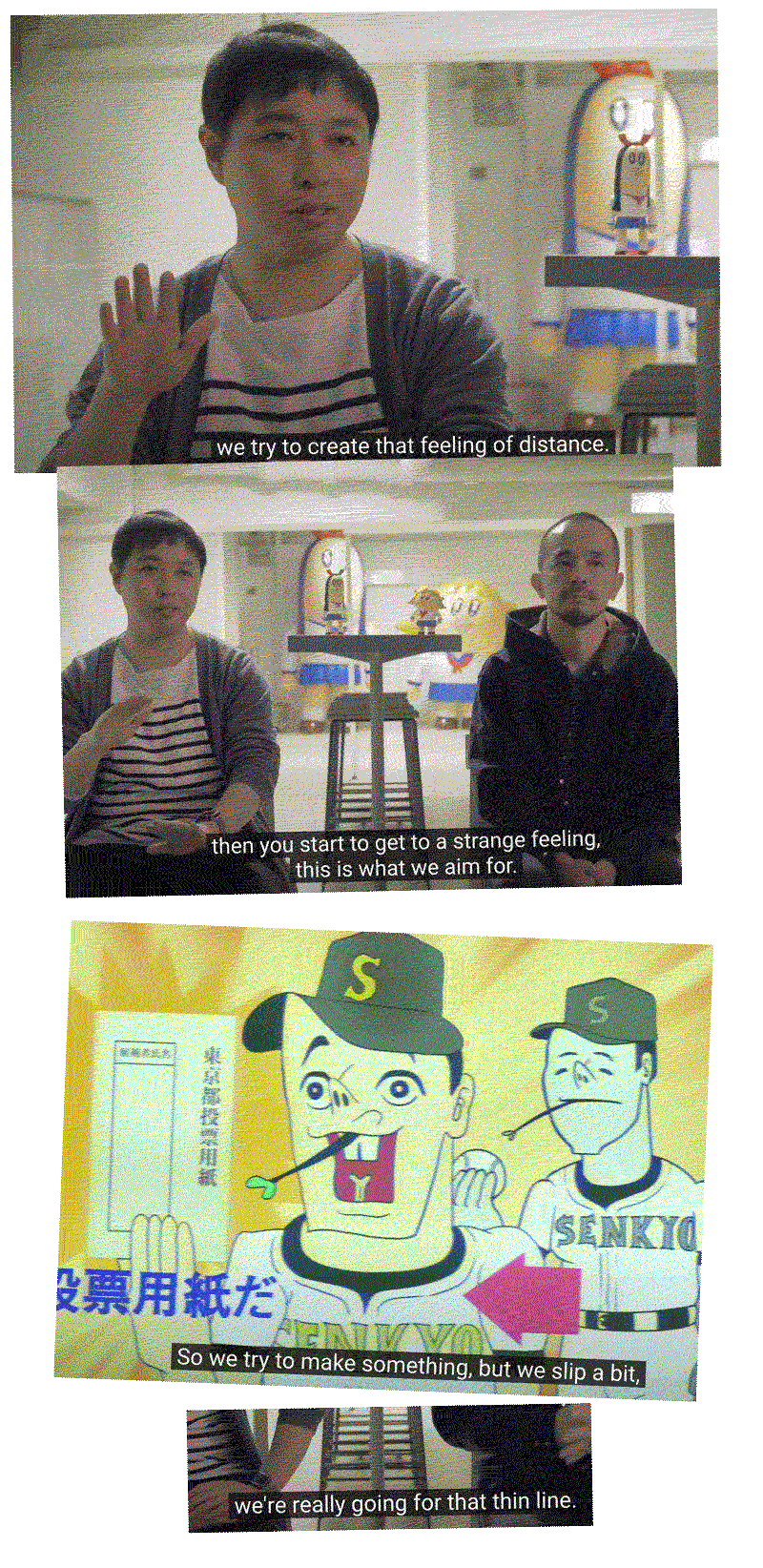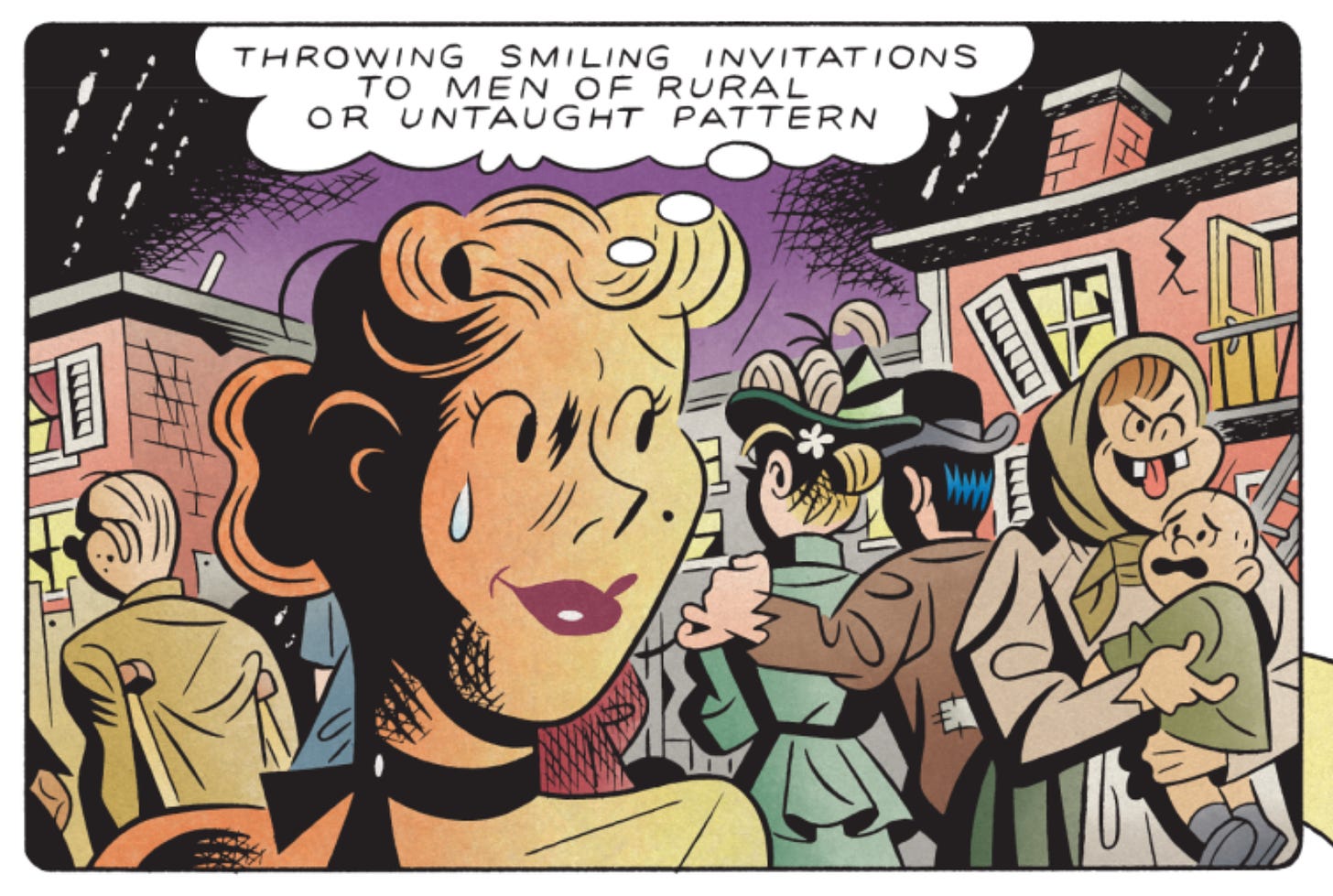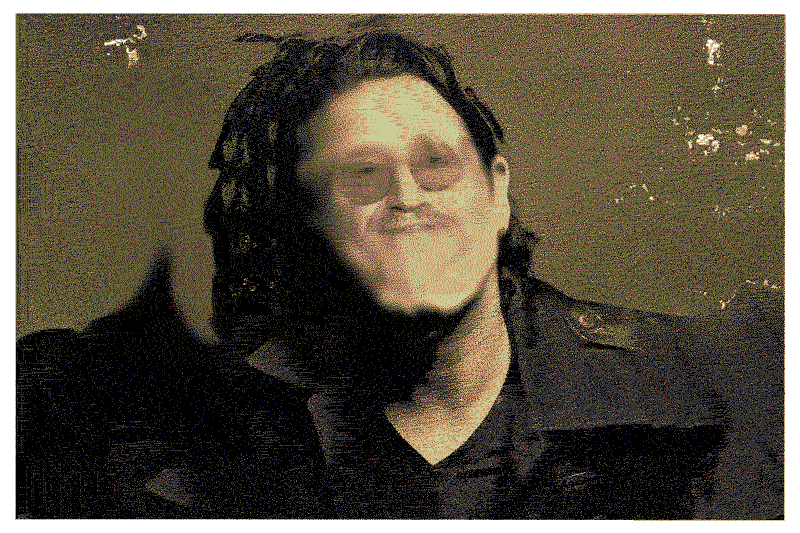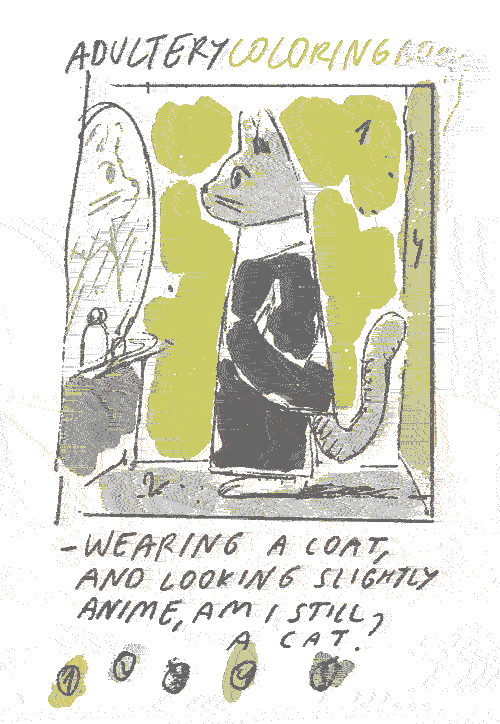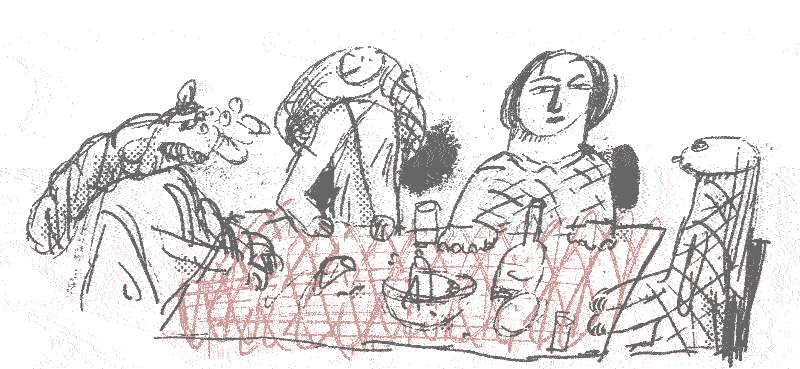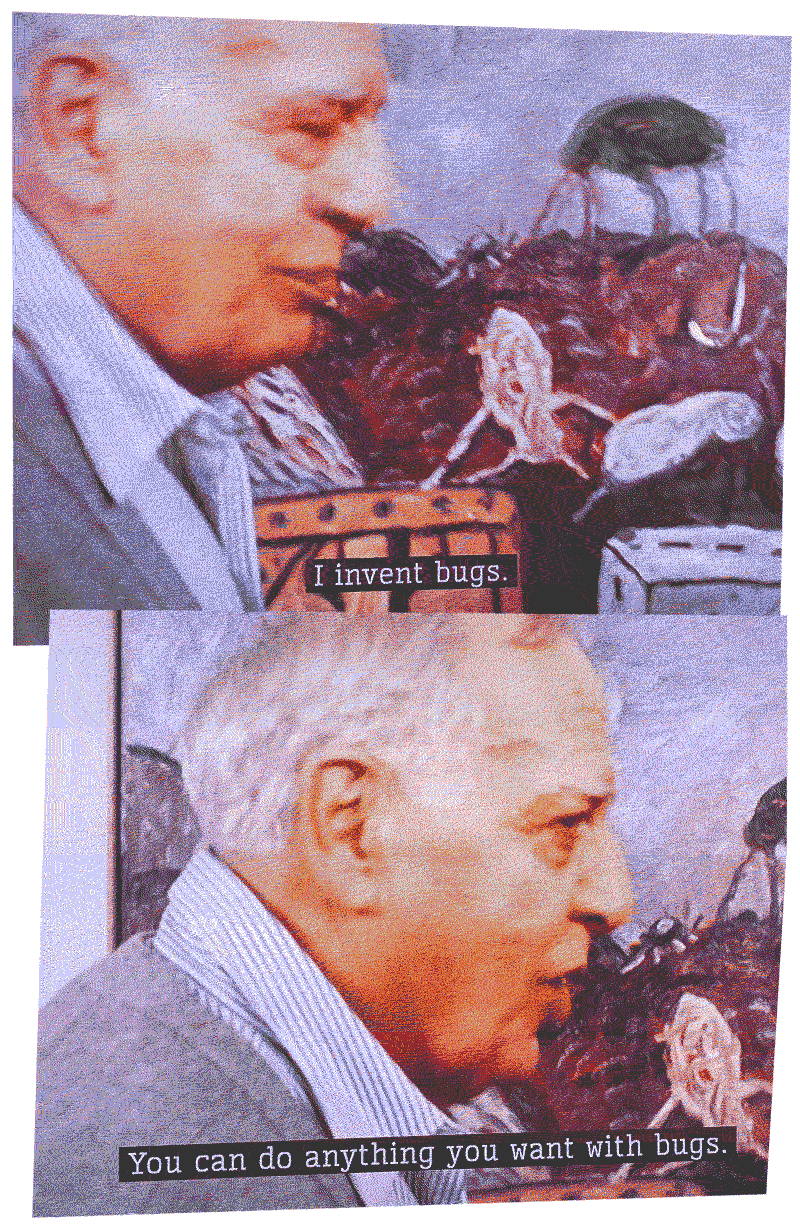September is upon us, and for those who can’t afford artschool tuition, here’s a free lecture on concept and design:
A HOUSEKEEPING ANNOUNCEMENT
Now that substack has an actual paywall, I’m going to include the bonus content at the end, so everyone gets just one email per month, both freeloaders and paypigs.
But first, let’s wrap up my Unified Theory of the Funny. If you missed the previous issues, here’s the first installment (on abstract/narrative comedy), and the second one (on cruelty).
AGAINST THE QUIP
Quipping is often the default vessel for comedy, and it doesn’t have to be—it’s usually the staircase wit of awkward people who hold grudges, then revisit them years later with a perfect comeback. Probably the worst kind of quipping set-up is the one where you can immediately tell where the writers’ sympathies lie.
Vladimir Sorokin said in some interview, a writer must dissect their characters with no fear of their blood. As soon as you establish the voice of reason, the story is dead. It doesn’t matter who has the power in reality, or in fiction, the interaction is cursed from the start, and has no chance to be anything greater than an illustrated opinion.
I’m very much guilty of writing quips—who isn’t? It feels good to write a comeback, especially to an awkward person who doesn’t have the guts to voice that comeback irl. That pleasure is part of the problem, as I see it. One must continuously try to step away from lived experience and into the surgical gown.
BALANCE AND INTUITION
Still, you can’t be over-analytical with humor, either. There should be room for silence, tedium, and deliberate unfunniness, and a lot of that comes from intuition, rather than planning and editing.
Anouk Ricard’s jokes can certainly be workshopped to death, but the best thing about a book like Benson’s Cuckoos is how the lightly funny dialogue adds up to a low-level discomfort that becomes cumulatively funny as you go through the book, rather than relying on the sort of snarky one-liners. In a different comic, she can do those too, extremely well:
So, in my estimation, quips are permissible only if it’s a banger of a line, and/or if it’s buried in other stuff that either advances the plot, or develops the character, or serves some function. Additionally, it should be padded out with non-quips, otherwise it will feel like too much candy. Fleabag, for instance, is quite good with that balancing act. Surely, much more can be milked out of the situation, but we have one big memorable (and slightly surreal) line, and the rest (in a pretty long scene, by the way) is far more restrained and realistic.
DISTANCE TO THE VAGINA
There’s a bit towards the end of the first Megg & Mogg collection where Owl humble-brags about bedding a hundred people:
The whole exchange reveals a lot about the characters—not even the fact that Owl such a player, but the way he delivers it, and while most characters react in a pretty realistic fashion and don’t quip much, Mogg has this memorable line:
Myself, I would’ve edited out out emeralds and secrets, but that probably speaks to my obsession with keeping everything unfinished. It is worth noting that ‘pussy’ wouldn’t have worked—the clinical term immediately de-sexifies the conversation, similarly to how J.G.Ballard never uses any smutty language to describe sex in his horrific dystopias.
Another classic comeback is from Thomas Pynchon’s the Crying of Lot 49:
“Run away with me,” said Roseman when the coffee came. “Where?” she asked. That shut him up.
Perfect economy at work—a single-word comeback that can could’ve easily been bloated to death. Both these examples slightly step away from the subject matter instead of simply mocking the character. Mogg could’ve said ‘what, are you trying to compensate for?’ and Oedipa Maas could’ve said ‘you’re too fat to run’ or something like that—a lot of shit comedy functions this way, every line is on the same plane, so it feels like an endless ping-ponging of quips.
A BREAK FROM WRITTEN LANGUAGE
Let’s take a look at visual comedy for a minute, because I think that the same principles apply here. The antithesis to your standard visual gag is the work of Japanese animation duo AC-BU. Here’s one of my favorite videos of theirs:
There’s a great short documentary about them, very much worth watching, and relevant to the discussion at hand. Towards the end they talk about the distance between the subject matter and the final result, and I think that’s one of the things that makes their work so funny—it is grounded in reality, but a few things are off, and the off-ness of those things goes really far. Amazingly, they get to pull that stuff off in commercial work like this batshit insane Domino’s Pizza ad, or Cup Noodle.
Tim Hensley explores a similar territory, I think, with a similarly unsettling effect. The recurring gag in his last book is having the characters ‘think’ verbose narration taken verbatim from the book that Hensley is adapting. It’s a weird device that gives you just that right off-ness, which is so much rare, and so much more preferable in my opinion than the usual stuff of ironic adaptations.
ON A MORE CONCEPTUAL LEVEL
Like all writing, and all art, good comedy isn’t about anything—it’s a continuous de-contextualizing of reality, a difficult balance between narration and abstraction. Most authors don’t even attempt that, which is why most comedy feels dated, especially nowadays, when everything is irrelevant as soon as it’s out. Material should be ground down and reassembled, until it lives in parallel with our reality, instead of trying to occupy it.
There’s a Fall line from A Past Gone Mad, often quoted as an example of MES’s wit:
If I ever end up like U2, slit my throat with a garden vegetable.
It’s a solid diss, but I’m much more fond of this line from Two Librans:
To Oprah Winfrey, she studied bees.
I don’t know exactly why I find it funny (that album came out a decade before she released the bees, btw), but that’s what makes it so good. The two lines have the same ingredients (celebrity + nature thing), but the U2 line has a clear message: Mark doesn’t rate U2 highly. What’s the message with in the Oprah line? Who knows—it’s up to us to play with it, or leave it as is.
To close, Simon Munnery has what I consider to be the perfect joke:
You can make many things out of matches. But not an oak.
I don’t think I laughed much when I first heard it, but I’ve thought and smiled about it countless times over the years. This seems to me a greater accomplishment than a joke that makes you laugh, once.
EDITING OUT THE MID-FUN
One of the most admirable qualities in a comedy writer, I think, is restraint. The decision to not be funny, to edit out the funny-ish bits, in service of the work as a whole—it puts more pressure on what’s left, and shows a greater confidence in presenting fewer jokes, instead of having them everywhere. Our desperate instinct tells us that it’s better to have funny-ish stuff than nothing, and it takes a bit of self-denial to leave the funny-ish things out, especially if they had made you (or others) laugh IRL at some point. Dinner party quips rarely translate into standalone work—the relationship between the author and the audience is completely different.
There is the stand-up concept of following up a joke with more little jokes to squeeze out more mileage out of it—it works in standup, because audience laughter is almost like another entity, not fully in control by either the comedian, or the audience itself. Still, I think a lot of people apply this principle to comics and film, which often leads to jokes feeling milked. I always prefer to have a skeleton of a joke, instead of a fully-explored thing that leaves nothing to the reader. I know this is a very subjective take, but everything here is, really—I am dissecting comedy, but on my own level, so if you don’t share my sense of humor, I imagine all of this might sound wrong.
The above is from a short interview with Philip Guston on Kanopy (it’s free with a library card). A good reminder that some of the funniest people aren’t comedians. Hope you enjoyed my ruminations—again, I’m no expert on the subject, and I don’t consider myself a great comedy writer, these letters were an attempt to understand the workings behind the stuff that makes me laugh, although having typed all of this out, I realize how much I’m attached to a kind of non-LOL humor. I do think there’s not enough of that kind of stuff—stuff that’s quietly funny, that layers many small and slow comedic touches, rather than going for an immediate effect.
I don’t think I’ve ever laughed at any of Guston’s paintings, but when you spend time with them, his own weird brand of levity starts coloring your perception of the world. And I think this is ultimately the highest expression of comedy, whatever the medium, whether it made you laugh or not. The labor lies in preserving and translating it that undiluted individual perspective, and that’s when editing becomes truly central to the art, a personal and unique kind of editing, that goes along with intuition instead of counter to it.
PS. I’ve been working hard on my new long comic, just finished pencilling the first chapter (50 pages), so hopefully I can finally start serializing it, maybe even in the next issue!
PPS. And now, bonus content, which includes the more upsetting and demented cartoons (including a brand new strip Whore Squalor, aimed at the radical anti-capitalist youth of today), plus a few more animated picks, and moooore boooonooooo.
Keep reading with a 7-day free trial
Subscribe to DADA issues to keep reading this post and get 7 days of free access to the full post archives.




